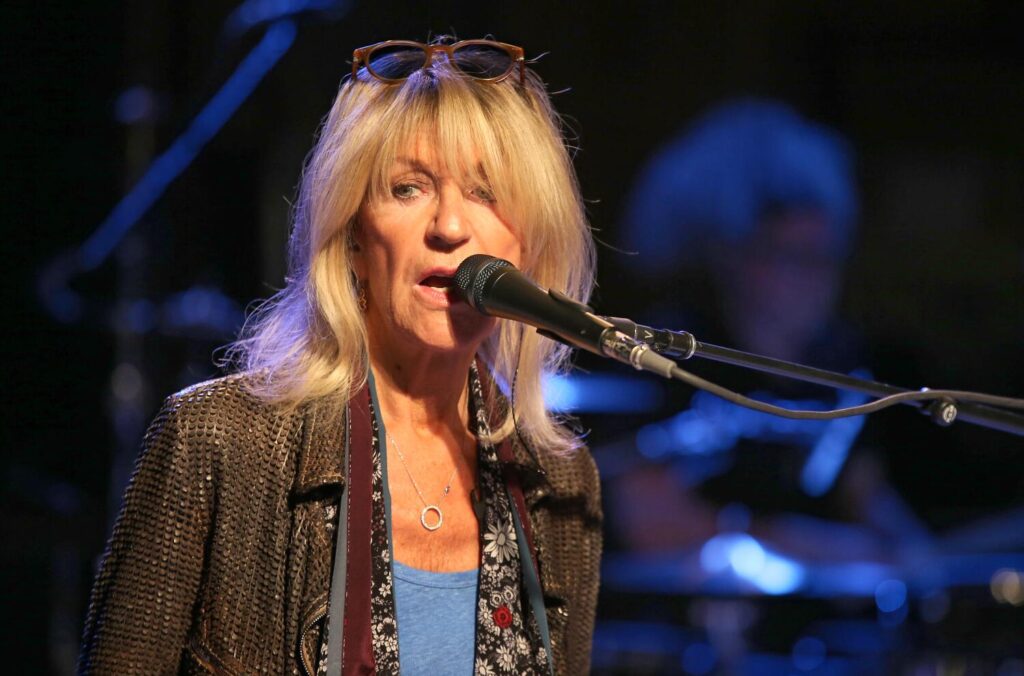Nearly one year after her death, the estate of Christine McVie has sold the rights to songs she made with Fleetwood Mac.
The Newark, N.J.-based investment firm HarbourView Equity Partners is behind the acquisition of her catalog, which includes hits that McVie either wrote, played or sang vocals on, including “Over My Head,” “Everywhere” and songs from the band’s seminal 1977 “Rumours” album, such as “Don’t Stop,” “You Make Loving Fun” and “Songbird,” the firm said in a statement announcing the sale on Wednesday. She was part of the recording of 16 Fleetwood Mac albums between 1968 and 1995.
McVie is now the fourth member of Fleetwood Mac whose music rights have been snapped up by music publishers, private equity firms and others over the last several years for significant sums of cash, with the McVie estate joining Mick Fleetwood, Stevie Nicks and former member Lindsey Buckingham.
HarbourView declined to disclose the amount of the recent McVie deal.
“Christine’s remarkable talents played an integral role in shaping Fleetwood Mac’s sound,” HarbourView Chief Executive Sherrese Clarke Soares said in Wednesday’s statement, which called McVie a “global treasure.” “The band’s timeless music and worldwide influence continues to captivate all generations of listeners today. We are honored to uphold that legacy as we welcome Christine’s lifetime of work with the band into HarbourView.”
McVie died on Nov. 30, 2022, at age 79. In April it was revealed that she died of an ischemic stroke while living in London. In the months since her death, two of her former bandmates have suggested that Fleetwood Mac will no longer perform together.
At the 2023 Grammy Awards in Los Angeles in February, Fleetwood told The Times that he plans to still perform, but “not as Fleetwood Mac,” adding that “the line in the sand has been drawn with the loss of Chris.” And earlier this month, Nicks echoed Fleetwood and told Vulture there was “no reason” to keep playing as a band. “I felt like you can’t replace her. You just can’t. Without her, what is [Fleetwood Mac]?” she said.
In 2020, Nicks sold the majority of her songs to Primary Wave for a reported $100 million, according to the Wall Street Journal. The following year, Fleetwood and Buckingham followed suit, selling their whole catalogs to BMG and Hipgnosis, respectively, for undisclosed sums.
Such acquisitions of major legacy catalogs have become more frequent in recent years. Bruce Springsteen reached a deal with Sony Music Entertainment in 2021 to sell his master recordings and songs for $500 million. Warner Chappell Music in 2022 bought David Bowie’s songwriting catalog for $250 million. A variety of rights and assets from artists including ZZ Top, Tina Turner and Paul Simon all sold in 2021. Last November, Whitney Houston’s estate sold the “I Will Always Love You” singer’s catalog for an undisclosed amount. More contemporary artists, such as John Legend and Imagine Dragons, have also reached similar deals in recent years.
Artists or their estates sell the rights to their music for a variety of reasons, including tax benefits and a quicker means of getting large amounts of money upfront, rather than waiting for royalties.
The buyers consider the deals as investments with projections of long-term revenue from radio play, disc sales, streaming and placement in movies, TV shows and commercials.
“It has been fast and furious, with a lot of money chasing after a limited supply of legacy catalogs,” Los Angeles-based music attorney Bill Hochberg told The Times last year. “There’s a lot of money out there, and it’s an asset class that’s pretty hot with the Wall Street crowd and private equity money.”
Also this week, HarbourView Equity announced it had acquired the rights to music by rock singer Pat Benatar and her husband and longtime collaborator, Neil Giraldo. Their hits include “We Belong,” “Hit Me With Your Best Shot,” “Invincible,” “Love Is a Battlefield,” “Promises in the Dark,” “We Live for Love,” “Heartbreaker” and “Hell Is for Children.”

